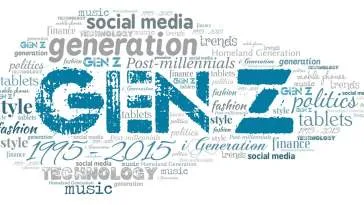(National Pulse) Millions of Gen Zers are struggling with mental health problems, according to a new survey, which reveals many of these problems were first identified during the COVID-19 pandemic. It is further evidence of the serious health consequences caused by the social-distancing measures taken in response to the virus.
Generation Z is the third-largest population in America, after millennials and baby boomers. While Zoomers are often singled out for praise by the corporate media for racial and sexual diversity, it’s also becoming clear many of them are suffering mental health issues to a far greater degree than earlier generations.
The survey was carried out by Harmony Healthcare IT, an Indiana-based data-management company. Just over 1000 individuals aged 18 to 24, with a roughly equal gender balance, were asked a range of detailed questions about their mental health.
Forty-two percent of those surveyed said they were suffering from a diagnosed mental-health problem, with 25 percent saying their diagnosis took place during the pandemic. Anxiety, depression, attention-deficit/hyperactivity disorder (ADHD), post-traumatic stress disorder (PTSD), and bulimia were just some of the conditions the respondents reported. By comparison with millennials or Gen X-ers, Zoomers are twice as likely to report struggling with emotional distress on a daily basis.
Near 70 percent said that they felt the pandemic had a negative effect on their mental health. Zoomers appear to be deeply anxious, with 85 percent saying they were worried about the future. Nine out of ten Zoomers diagnosed with a mental-health issue have anxiety and eight out of ten suffer from depression.
Particular concerns for Zoomers include personal finances, the economy, their health, the environment, politics, and the workplace. Three-quarters of Zoomers say they feel disadvantaged by comparison with older generations, and 90 percent have a hard time picturing a stable future for themselves.
Twenty percent of the study participants said they have a regular therapist, while 57 percent take regular medication and 39 percent attend therapy for mental health issues at least once a week.




















